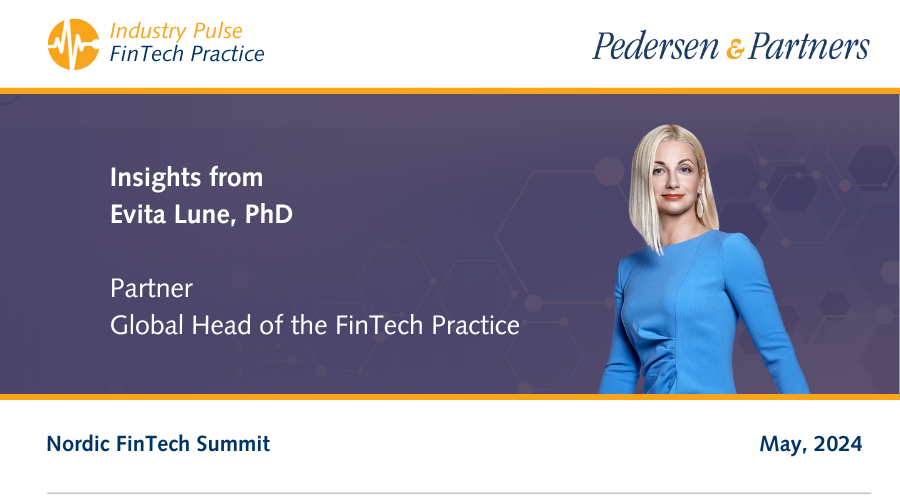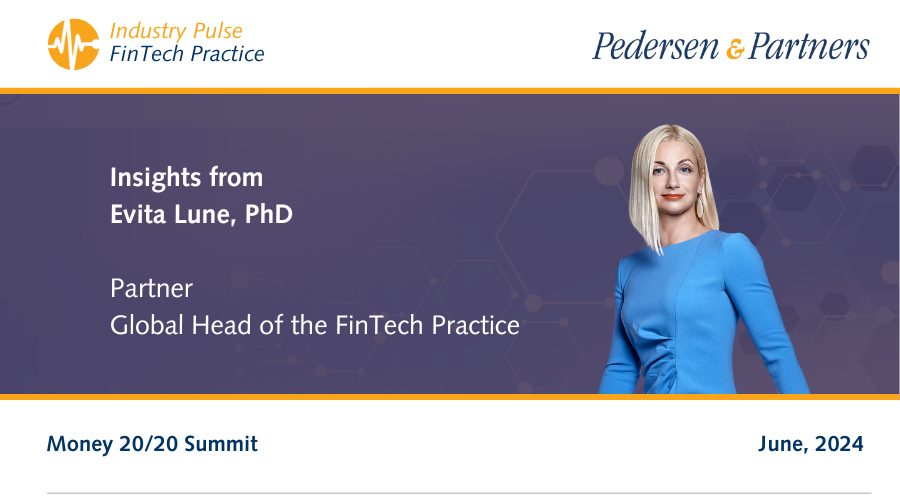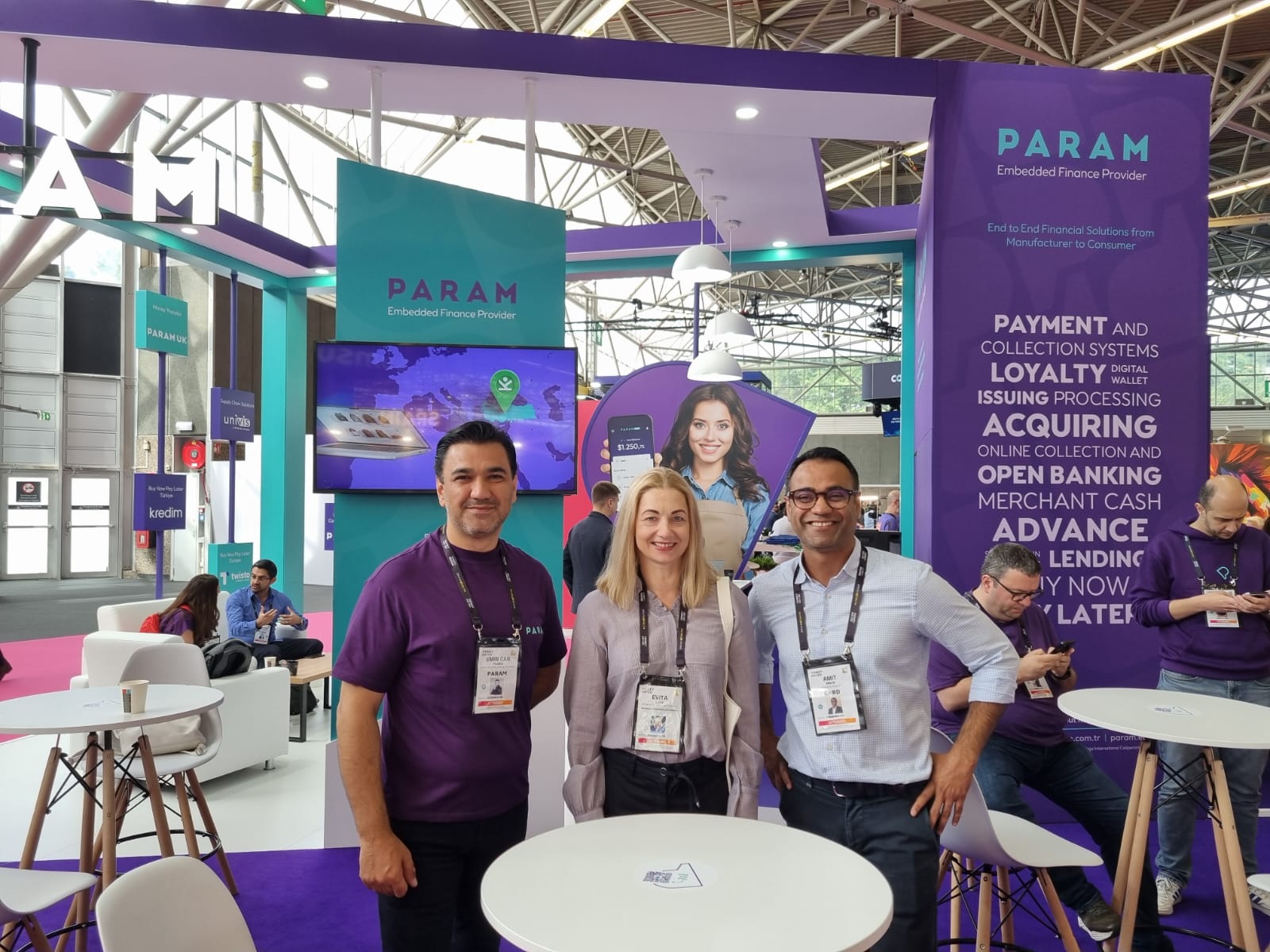Insights from Nordic FinTech Summit – 2024
By Evita Lune, PhD, Partner, Global Head of the FinTech Practice Pedersen & Partners
May 20, 2024 - Helsinki
Nordic FinTech Summit is on my agenda every year due to an opportunity to see my Nordic clients and candidates all in one place and learn what’s cooking. Thank you, Ola Sundell and Janne Salminen for making this happen!
The most successful Finnish Fintech Multitude was announcing superb quarterly results today, so it was very challenging to juggle between the two events. My humble suggestion would be to bring someone from Multitude or CapitalBox to the stage to hear real achievements from the best. Jokela Jorma, Mantvydas Štareika, Antti Kumpulainen, and Kristjan Kajakas actually developed a profitable, well-funded, well-governed group of challenger companies.
Some promising ventures to watch in Finland: Coinmotion led by Antti-Jussi Suominen educates crypto enthusiasts to work with crypto for long-term wealth creation. Luckily, with MICA regulation in the upcoming years, the platform will be available for European investors from outside Finland. While one may think that more is better, Coinmotion scrapped the cards and payments business to focus on the core.
It was good to see Latvian FinTech entrepreneurs like Armands Liseks taking the stage and kicking off new ventures. The success of Latvian online lenders and associated businesses is underrated, probably due to their focus on other markets than Nordics. There is a lot inGain can offer to non-finance industries looking to innovate their offering with financial products.
Georg Hauer reconfirmed the future of banking being customer-centric, with consumer retail brands in front and BaaS solutions in the back and that emerging markets have jumped over the branch banking stage: from unbanked directly to mobile banking. The banks, which choose to ignore the trend will most likely end up like Nokia phones versus Apple. Juha Keski-Nisula from XMLdation discussed how to view CBDCs from a Fintech Perspective and finally taught us all what FinTech really means: Finnish Technology 😊.









